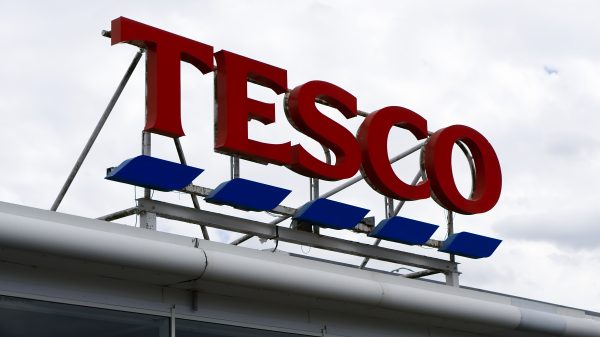It all seems to have gone a bit wrong for Tesco over the past couple of weeks.
The complications all started with a simple letter, sent by Tesco’s chief product officer Ashwin Prasad, which told suppliers there would be “additional fulfilment charges” for products sold through its online platform and via its Booker wholesale channel.
Created to help cover the cost of serving customers online, as its digital operations become more complex, the new Amazon-style charges came into effect just days later, on 13 March. At the time, Tesco said any supplier who didn’t comply with the new fees could face the threat of range reviews or reduced prices.
Almost immediately – and completely unsurprisingly – Tesco came under fire from some fierce backlash.
Following widespread criticism throughout the industry, Tesco quickly changed its tune and promised Groceries Code Adjudicator (GCA) Mark White that suppliers will not be de-listed if they refuse the new ‘fulfilment fee’ system.
White told The Grocer that he had looked into the actions of the UK’s largest supermarket following a number of complaints from suppliers, calling on them to show evidence if Tesco had breached the Groceries Supply Code of Practice.
So how will the new fulfilment fees change the way suppliers operate – and is Tesco even able to impose them in the first place?
Subscribe to Grocery Gazette for free
Sign up here to get the latest grocery and food news each morning
How Tesco’s fulfilment fees were supposed to work
While the exact details of the fulfilment fees have not been disclosed, it is understood that the supermarket’s smallest suppliers are exempt from the charges, which be applied on a pence per unit basis on all products sold through Tesco.com or on the app.
The initial letter, seen by The Grocer, told suppliers that Tesco as “shouldered the majority of fulfilment costs” it needed to charge the fee as it looked to “achieve a more balanced approach”.
It said: “This fee is essential as we work to fulfil more orders for our customers across the group and we are asking suppliers to engage on this request and to support us.”
It continued: “Without introducing a supplier contribution, we would need to take additional decisions on range optimisation, differentiated price and trade plans. It is important you work with us on the fulfilment fee as we both look to benefit from the investment into serving customers.”
Is Tesco’s fulfilment fee fair?
“To pass the cost of retailing on to suppliers is completely unjustified,” said British Brands Group director John Noble.
“It’s hard to see an upside for branded suppliers. You could say that it is more challenging for branded products to compete against private labels, because the charges are higher for branded products than for private ones.”
Noble added: “As for ‘delisting’ suppliers, there are lots of ways in which a retailer can ‘punish’ a supplier who isn’t complying with the retailer’s requests, whether voluntary or otherwise.
“If a supplier chose not to introduce the fulfilment fee, there are still several ways in which a retailer [Tesco] can disadvantage that supplier. For example, they can give their products a far less strong prominence on webpages or provide more support toward one of their direct competitors.
“Just saying they wouldn’t delist them is a very small part of the total story about what options they would have.”
Suppliers have been told they can speak to their category director/buying manager at Tesco, or contact the code compliance officer, David Ward, who will treat any information provided confidentially.
A spokesperson for the Groceries Code Adjudicator (GCA) said simply: “Tesco has told the GCA that this fee is voluntary”, but added that it would “like to hear from any suppliers with concerns”.
The backlash
With online sales stabilising at around 10-11% of the grocery market, having reached a peak of 15% during the pandemic, IPLC partner Paul Stainton told Grocery Gazette that Tesco’s move is a “very odd one”.
He pointed out that this came at a time where “collaboration between retailers and suppliers is key to navigating through recent exceptionally high cost increases and general availability of products”.
While Tesco may be trying to add profit to a side of the business that is rapidly losing cash, Stainton said that “to impose a fee per product onto their suppliers cannot be the right action at this time. Any margin would be obliterated”.
“Looking into their online cost structure, finding efficiencies, and maybe even increasing the delivery charge to the customer would be better alternatives.”
He went to say that nowadays, “co-operative collaboration between retailers and suppliers is the way to foster long-term relationships and win-win situations for both parties.
“With GSCOP in place I strongly believe retailer practices have changed for the goods and see this Tesco action as simply being an ill thought through initiative. I wouldn’t be surprised if they regret sending out in the first place.”
Ged Futter, retail analyst and director at The Retail Mind, called Tesco’s shock proposal a “buyer’s worst nightmare” and a “corporate money grab” which is causing buyers to “pull their hair out”.
“Tesco’s buyers are now stuck. They have a corporate project that has been sent out they they now have to deliver on. But, here is where it gets tricky for the buyer, it is not mandatory, there is no definitive date and it is a negotiation.”
He advised suppliers to “ignore or reject this money grab” as “there really is no benefit to them at all”.
“This is not ‘more for more’ it is simply a transfer of profit to Tesco to pay for something that they are responsible for. They are a retailer, they are not ‘shouldering the cost’, it quite literally is their cost!”
Henley Business School head of marketing Adrian Palmer said there was “nothing new in retailers seeking additional contributions from suppliers”, adding that “joint promotions and fees for preferential shelf space have been around for a long time”.
“But there have also been one-sided enforced contributions where retailers have demanded rebates from suppliers. This is more likely to be based on an imbalance of power between the parties.”
While the cost of fulfilling online orders has risen as wages and fuel costs have increased, Palmer says Tesco must still “balance its strength to enforce the fees via its 30% grocery market share, against provoking the attention of the Grocery Code Adjudicator.
“There may be a logic of sharing costs of fulfilling orders with suppliers where there is a win for both parties,” he continues.
“But gains for Tesco’s online retail operations may come at the expense of its bricks and mortar sales – so suppliers only see a transfer of value, not the creation of new value. The real challenge for creating win-win value from online fulfilment fees is to create added value of online in the eyes of consumers, creating bigger margins which can be shared with suppliers.”
Where can Tesco go now?
As for whether other supermarkets will follow Tesco’s lead, Palmer said some major retailers may see this as “a means of collaboratively growing online grocery sales which have been plateauing”.
“To voluntarily and enthusiastically agree to a fulfilment fee, suppliers must be convinced that their contribution to investment in online retail will grow their specific market, not simply shift it from bricks and mortars stores.”
While it seems unlikely that other retailers are to follow, this certainly is not a good look for Tesco. The executives behind this decision have seemingly shot themselves in the foot by meddling with their own supply chain.
Amid rising costs and inflation, it is understandable for businesses to make cuts to help save some cash. But for the largest retailer in the UK, this was not the way to go about it.











1 Comment. Leave new
It is entirely a matter for Tesco how they choose to generate sales. Asking suppliers to contribute to increased costs is quite simply wrong.